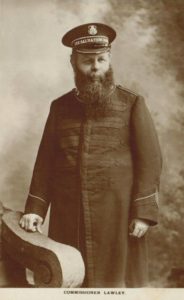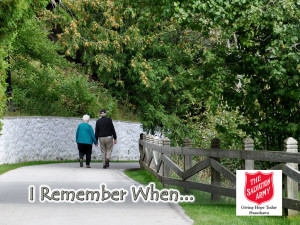O happy, happy day
When old things passed away,
There where the Saviour died for me!
I knew my sins forgiven
And had a sight of Heaven,
There where the Saviour died for me.
CHORUS:
There where the Saviour died for me,
There where the Saviour died for me,
I saw the cleansing flow
That washes white as snow,
There where the Saviour died for me.
I laid my burden down
And started for the crown,
There where the Saviour died for me.
My soul was free at last,
My sins behind Him cast,
There where the Saviour died for me.
‘Twas there I learnt to pray
And found the narrow way,
There where the Saviour died for me.
I saw His blessèd face
And joined the heavenly race,
There where the Saviour died for me.
He wiped away my tears
And drove away my fears,
There where the Saviour died for me.
He whispered: “Go in peace;”
And bade my struggling cease,
There where the Saviour died for me.
Though Hell should me assail,
Through prayer I shall prevail,
There where the Saviour died for me.
I never need retreat,
Nor suffer a defeat,
There where the Saviour died for me.
 Typical of the joyous songs of Salvationists is this one in the style of the Army’s early days, by Commissioner John Lawley. Lawley’s career included farm labour, engineering work, pastoring in Salvation Army churches, and assisting first William Booth and later, Bramwell Booth, in leading meetings, particularly in the congregational singing. John Lawley also performed vocal solos. He is the author of several songs found in our current Song Book.
Typical of the joyous songs of Salvationists is this one in the style of the Army’s early days, by Commissioner John Lawley. Lawley’s career included farm labour, engineering work, pastoring in Salvation Army churches, and assisting first William Booth and later, Bramwell Booth, in leading meetings, particularly in the congregational singing. John Lawley also performed vocal solos. He is the author of several songs found in our current Song Book.
An intriguing aside is a 120-year-old recording that has recently been brought to light. In it John Lawley sings a song he wrote, the chorus of which would be familiar to those who grew up in Salvation Army Sunday Schools: My Sins Rose As High As the Mountain . It was always sung complete with actions accompanying each phrase. Click below and have a listen!
An intriguing aside is a 120-year-old recording that has recently been brought to light... Share on X




